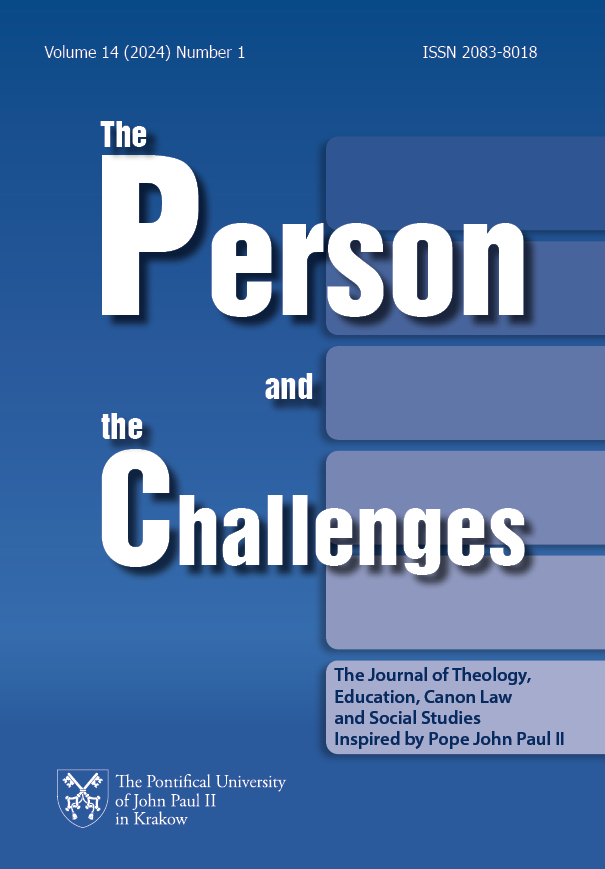Application of Catholic Social Teaching in Finance and Management
DOI:
https://doi.org/10.15633/pch.14118Słowa kluczowe:
Catholic Social Teaching, religion, ethical investing, management, leadership, parablesAbstrakt
In dominating narratives, economics has been portrayed as hard science, based on complex mathematical equations and rigid statistical models. It seems to be overlooked that it belongs to the domain of social sciences and that its roots stem from philosophy and ethics. After all, many classical economists were either ethicists (A. Smith) or clergymen (T. Bayes). Today’s managers also seem to be motivated mainly by the desire to increase their company’s profits. However, if managers wish to become both effective and respected leaders for their teams, they should build their power on ethical principles deeply rooted in Catholic Social Teaching. The purpose of the present paper is to attract attention to the relation of economics, management and religion. Behavioral economics and management come to our aid here by emphasizing that, when making decisions related not only to financial markets but also to managerial tasks, what matters is not only factors that are strictly financial, but also those are related to psychology or ethics. Using the example of ethical investing and faith-based funds or stock indexes the Authors show that Christian values and the social teaching of the Catholic Church are still important to some participants in the financial markets.
Bibliografia
Agosto E., Servant Leadership: Jesus and Paul, Chalice Press 2012.
Arli D.I., Tjiptono F., Consumer Ethics, Religiosity, and Consumer Social Responsibility: are They Related?, “Social Responsibility Journal” (2018) Vol. 14 No. 2,
pp. 302–320.
Ave Maria Mutual Funds (avemariafunds.com), (29.01.2024).
Benedict XVI, Caritas in veritate, (2009), http://www.vatican.va/content/benedict-xvi/en/encyclicals/documents/hf_ben-xvi_enc_20090629_caritas-in-veritate.html, (10.07.2021).
Budayová Z. (eds), The Impact of Modern Technologies on Life in a Pandemic Situation, “Journal of Education Culture and Society” 13 Nr 1, (2022), pp. 213–224.
Christensen C. M., How Will You Measure Your Life? (Harvard Business Review Classics). Harvard Business Review Press, 2017, https://hbr.org/2010/07/how-will-you-measure-your-life (21.10.2021).
Covey S. R., The 8th habit: From effectiveness to greatness, Simon and Schuster 2013.
Curran C.E., Catholic social teaching, 1891–present: A historical, theological, and ethical analysis, Georgetown University Press 2002.
Czerwonka M., Cultural, cognitive and personality traits in risk-taking behaviour: Evidence from Poland and the United States of America, “Economic research-Ekonomska istraživanja” 32 (1), (2019), pp. 894–908.
Czerwonka M., The influence of Religion on socially responsible investing, “Journal of Religion and Business Ethics” (2014), 3 (1).
Drucker P. F., The Essential Drucker, New York 2005.
Ferruz L., Munoz F., Vargas M., Managerial abilities: Evidence from Religious Mutual Fund Managers, “Journal of Business Ethics” (2012), 105 (4), pp. 503–517.
Francis Pope, Evangelii Gaudium, United States Conference of Bishops, 2013. http://www.vatican.va/content/francesco/en/apost_exhortations/documents/papa-francesco_esortazione-ap_20131124_evangelii-gaudium.html, (10.07.2021).
Francis Pope, Fratelli Tutti, Vatican City 2020, https://www.vatican.va/content/francesco/en/encyclicals/documents/papa-francesco_20201003_enciclica-fratelli-tutti.html (10.07.2021).
Francis, Pope, Laudato si, Vatican City 2015, http://w2.vatican.va/content/francesco/en/encyclicals/documents/papa-francesco_20150524_enciclica-laudato-si.html, (10.07.2021).
Gómez-Bezares A.M., Gómez-Bezares F., Catholic Social Thought and Sustainability. Ethical and Economic Alignment, “Journal of Risk and Financial Management” (2021) 14 (1) 11, pp. 1–22.
Hindle T., Guide to Management Ideas and Gurus, Vol. 42, John Wiley & Sons, (2008).
John Paul II, Laborem Exercens, Vatican City 1981, https://www.vatican.va/content/john-paul-ii/en/encyclicals/documents/hf_jp-ii_enc_14091981_laborem-exercens.html, (21.10.2021).
John Paul II, Veritatis Splendor, The Vatican City, https://www.vatican.va/content/john-paul-ii/en/encyclicals/documents/hf_jp-ii_enc_06081993_veritatis-splendor.html, (21.10.2021).
New American Bible, https://www.vatican.va/archive/ENG0839/_INDEX.HTM, (21.10.2021).
Judák V. (eds), The importance of social and spiritual bridging in relation to post-covid society polarization in Slovakia, “Acta Missiologica“ (2022) 16 nr. 1, pp. 126–137.
Králik R. (eds), Compassion and Solidarity with the poor in Tahakh and Rabbinic Judaism, “Acta Missiologica” (2022) 16 nr. 1, pp. 154–168.
Lichner M. (eds), Pope Francis and jews. The proposed possibilities of Jewish-Christian dialogue, “Acta Missiologica“ (2021) 15 nr. 2, pp. 301–310.
Lichner M. (eds), Various aspects of understanding almsgiving in the context of solution of poverty in Aurelius Augustinus, Acta Missiologica (2023) 17 no. 1, pp. 85–96.
Ludvigh Cintulová L., Radková L., Budayová Z., Mental health of Roma women in post-covid era, “Acta Missiologica” (2022) 16 nr. 2, pp. 116–129.
Ludvigh Cintulová L., Budayová Z., Juhásová I., Health of Roma People living in marginalized Communities in Slovakia, “Clinical Social Work and Health Intervention” (2023) 14 nr. 1, pp. 7–15.
Ludvigh Cintulová L., Beňo P., Pavlovičová T., Aspects of social services and wellbeing in postcovid era, “Int J Health New Tech Soc Work“ (2023) 18 nr. 3, pp. 106–114.
Mátejová A., Tománek P., Family and Current Socialegal Measures for its Members in the Slovak Republic, in: Strong Families – Strong Societies, ed. E. Osewska, Krakow 2019: Uniwersytet Papieski Jana Pawła II, pp. 69–89.
Maturkanic P., Judak V. (eds), Catholic spirituality of north bohemia mission area and its future direction, “Acta Missiologica” (2023) 17 nr. 2, pp. 20–23.
MSCI USA Catholic Values Index Methodology, (29.01.2024).
Northouse P.G., Leadership: Theory and practice, Sage publications 2021.
Gaudium et Spes, Second Vatican Ecumenical Council, Pastoral Constitution on the Church in the Modern World, 1966.
Thaler R.H., Behavioral Economics: Past, present, and future, “American Economic Review” (2016) 106 (7), pp. 1577–1600.
Pobrania
Opublikowane
Numer
Dział
Licencja

Utwór dostępny jest na licencji Creative Commons Uznanie autorstwa 4.0 Międzynarodowe.
Autorzy publikujący w czasopiśmie udzielają jego wydawcy zgody o następującej treści:
- Autor zachowuje autorskie prawa majątkowe do utworu, a jednocześnie udziela wydawcy czasopisma zgody na jego pierwszą publikację w wersji drukowanej i wersji online na licencji Creative Commons Uznanie autorstwa 4.0 Międzynarodowe oraz zgody na wykonywanie opracowań, w tym przekładów.
- Autor ma możliwość udzielania zgody niewyłącznej na opublikowanie utworu w wersji, która ukazała się w czasopiśmie (np. zamieszczenia go w repozytorium instytucjonalnym lub opublikowania w książce), wraz z informacją o jego pierwszej publikacji w czasopiśmie.
- Autor może umieścić swój utwór online (np. w repozytorium instytucjonalnym lub na swojej stronie internetowej) jeszcze przed zgłoszeniem utworu do czasopisma.

